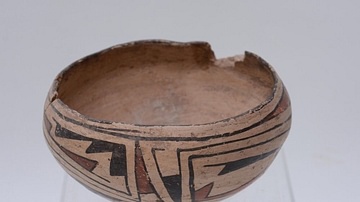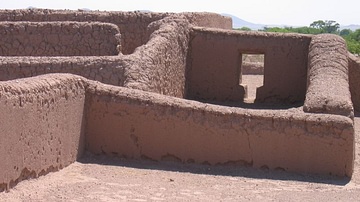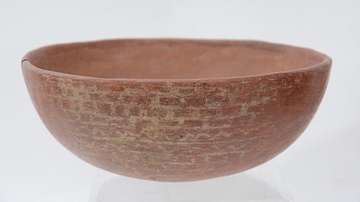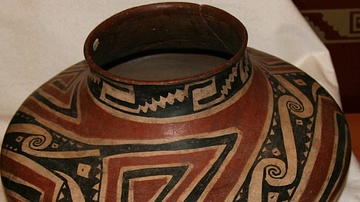Illustration
The Salado culture is a term used by historians and archaeologists to describe a pre-Columbian Southwestern culture that flourished from c. 1200-1450 CE in the Tonto Basin of what is now the southern parts of the present-day US states of Arizona and New Mexico. The Salado cultural group traded extensively with their neighbors in the Southwest, and their pottery — commonly referred to as "Roosevelt Red Ware," "Salado Red Ware," or "Salado Polychrome" — has been found as far away as Casas Grandes, in what is now Chihuahua, Mexico, where it was highly prized. Salado pottery demonstrates a striking combination of white, black, and red colors in geometrical shapes and lines with additional compositional characteristics. Many archaeologists conclude that among the ceramic traditions of the ancient Southwest, the Salado tradition produced the most widely traded pottery. This specimen dates from c. 1200-1450 CE, and it is made from clay.
About the Author
Cite This Work
APA Style
Wiener, J. B. (2019, February 19). Example of Salado Culture Pottery. World History Encyclopedia. Retrieved from https://www.worldhistory.org/image/10119/example-of-salado-culture-pottery/
Chicago Style
Wiener, James Blake. "Example of Salado Culture Pottery." World History Encyclopedia. Last modified February 19, 2019. https://www.worldhistory.org/image/10119/example-of-salado-culture-pottery/.
MLA Style
Wiener, James Blake. "Example of Salado Culture Pottery." World History Encyclopedia. World History Encyclopedia, 19 Feb 2019. Web. 13 Apr 2025.








